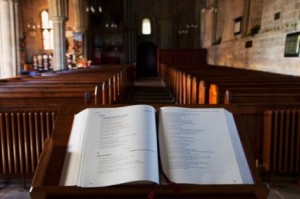 The evangelical church has a problem. We’re going to run out of good pastors. For a variety of reasons, we are failing to sufficiently prepare the next generation of church leadership. I doubt this particular problem will ever feel like a full-blown crisis, given the many influences on church health and the wide diffusion of the effects, but it’s a trend with costly consequences. All things being equal, eventually there will be fewer churches than there could be, and on average they will be weaker.
The evangelical church has a problem. We’re going to run out of good pastors. For a variety of reasons, we are failing to sufficiently prepare the next generation of church leadership. I doubt this particular problem will ever feel like a full-blown crisis, given the many influences on church health and the wide diffusion of the effects, but it’s a trend with costly consequences. All things being equal, eventually there will be fewer churches than there could be, and on average they will be weaker.
This message is different than the common doomsday alarms. American evangelicalism is not in perfect health, but it’s strong in many respects. More 20-somethings are currently attending evangelical churches than any year since 1972. Enrollment in Christian Colleges is also up, as is diversity. The problem is not that there aren’t any young people in church; it’s that not enough of them are planning to lead.
Why think this?
First, the numbers. While Christian colleges are growing, seminary enrollment has either plateaued or declined at mainline and evangelical seminaries. Don Sweeting, President of Reformed Theological Seminary, told the Lausanne Consultation on Global Theological Education a few months ago in his plenary address, “We have more seminaries and fewer students.” It’s not just an enrollment issue. As anyone who has recently spent time on seminary campuses can tell you, more and more seminarians are not planning on leading churches. They are there for counseling, or para-church ministry, or simply to learn more about Scripture. Quite a few don’t know why they are there.
This brings us to quality. There are no easy ways of determining the quality of pastors-in-training, even on very simple metrics (unlike most other graduate programs, an M.Div. does not require GRE scores). What we do know is that there has been a distinctive cultural shift away from a “best and brightest” mentality of the Puritans. To put it very simply: the top Christian students (whether attending a Christian colleges or not) are generally not interested in leading churches vocationally. From what I see, this trend is accelerating. Schools like Gordon, Wheaton, Moody, and Biola are not producing nearly as many future ministers as they used to, and even fewer from the top 25% of students (a group I’ll call the leadership quartile). To the leadership quartile academia, medicine, law, politics, technology, and media are attractive—sadly, being a pastor is not.
I see three reasons this is happening:
Login to read more
Sign in or create a free account to access Subscriber-only content.
